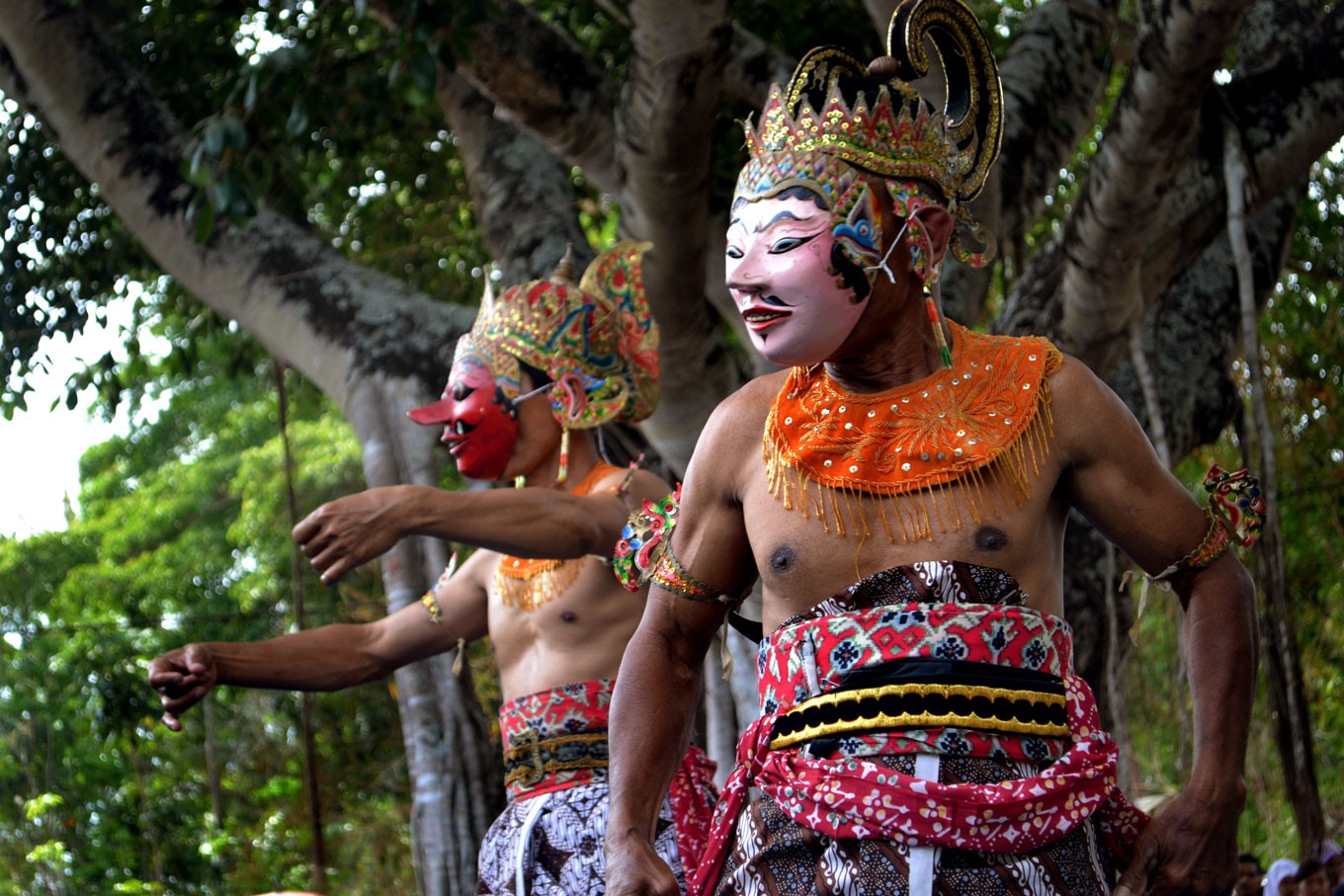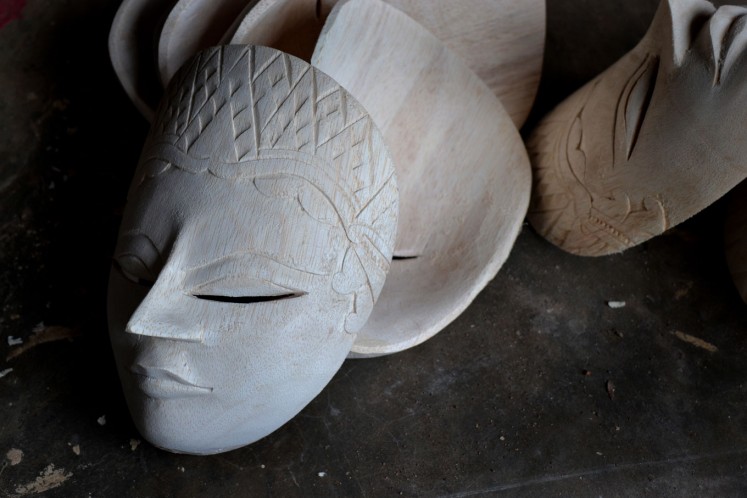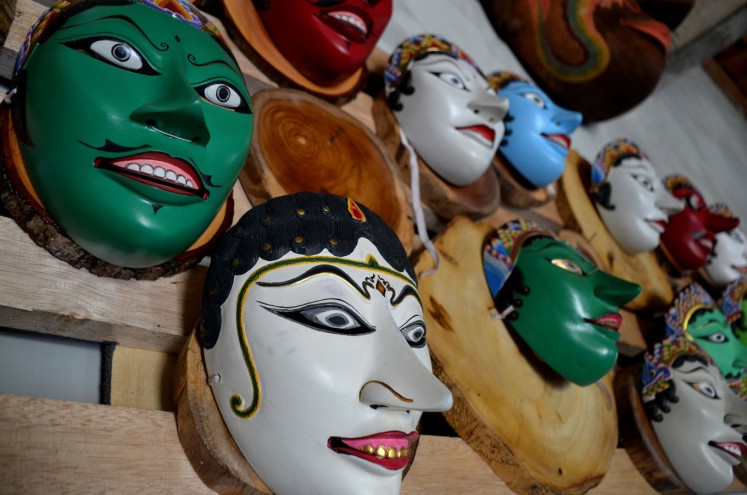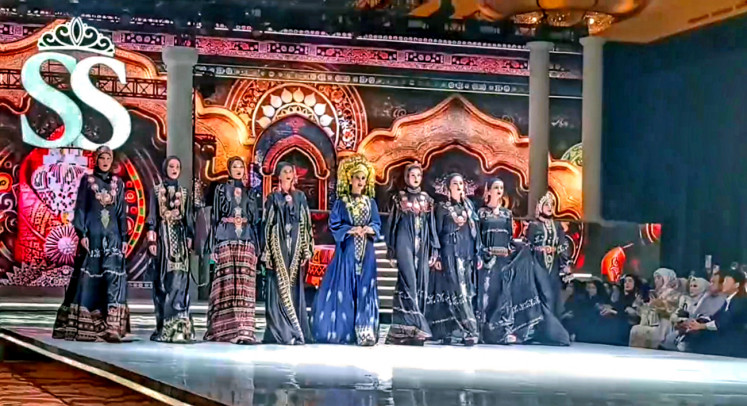Yogyakarta village craftsmen uphold mask-making tradition
The small Bobung Village in Yogyakarta is known across the nation for its traditional masks.
Change Size
 The masks are used in performing the tales of Panji, inspired by stories of Javanese cultural hero Prince Panji Inu Kertapati that date back to the 13th century.
(JP/Stefanus Ajie)
The masks are used in performing the tales of Panji, inspired by stories of Javanese cultural hero Prince Panji Inu Kertapati that date back to the 13th century.
(JP/Stefanus Ajie)
T
he small Bobung village in Yogyakarta is known across the nation for its traditional masks. Sitting amid Seribu Mountains in Gunungkidul, visitors to the village first pass through scenic hills in the Patuk area, coming across winding roads lined by teak trees, rural villages and rice fields.
Located not far from the main road connecting the city of Yogyakarta with Wonosari in Gunungkidul, Bobung village is easy to reach.
While the majority of its residents are farmers, the village is home to a handful of craftsmen who have upheld the making of traditional wooden masks.
Sujiman, a local resident, has been dedicated to creating Panji masks since the 1970s, which he first learned to make by borrowing a mask from a Panji Klana dancer.
The masks are used in performing the tales of Panji, which are inspired by stories of Javanese cultural hero Prince Panji Inu Kertapati that date back to the 13th century.
Read also: Great Indonesian literature: Tales of Panji

The traditional masks in the past were regarded as a sacred object, and in respect, Sujiman obeyed certain conditions when borrowing the Panji masks as an model by which to create some of his own.
The masks depict different characters in the story, such as Gunung Sari, Kundana Warso, Klana Sewandana and Panji Semirang.
Intricately detailed, upscale masks can be sold at prices ranging from Rp 1.5 million (US$110) to Rp 3 million, depending on the complexity of the design.
"The mask enthusiasts of these versions are also limited, usually purchased by collectors, foreign tourists, professional dancers and academic institutions," Sujiman said.

The enthused craftsman further shared that a Korean tourist had recently bought a set of classical Panji masks consisting of 32 characters. Most tourists however, generally prefer to buy a batik mask and other decorative handicrafts, which are sold at prices starting from Rp 25,000, Sujiman added.
In the past year, Sujiman, along with several local artists, had been involved in developing a modern take on the Panji dance in a bid to attract younger audiences to the classical tale. Between one to two hours long, the new dance can be performed at any time, unlike its original counterpart.
The traditional tari topeng Panji (Panji mask dance) and tari topeng Penthul Tembem (Penthul Tembem mask dance) are usually performed during traditional ceremonies in the Gunungkidul area, such as during sea-offering rituals and sacred prayers. (liz/kes)









